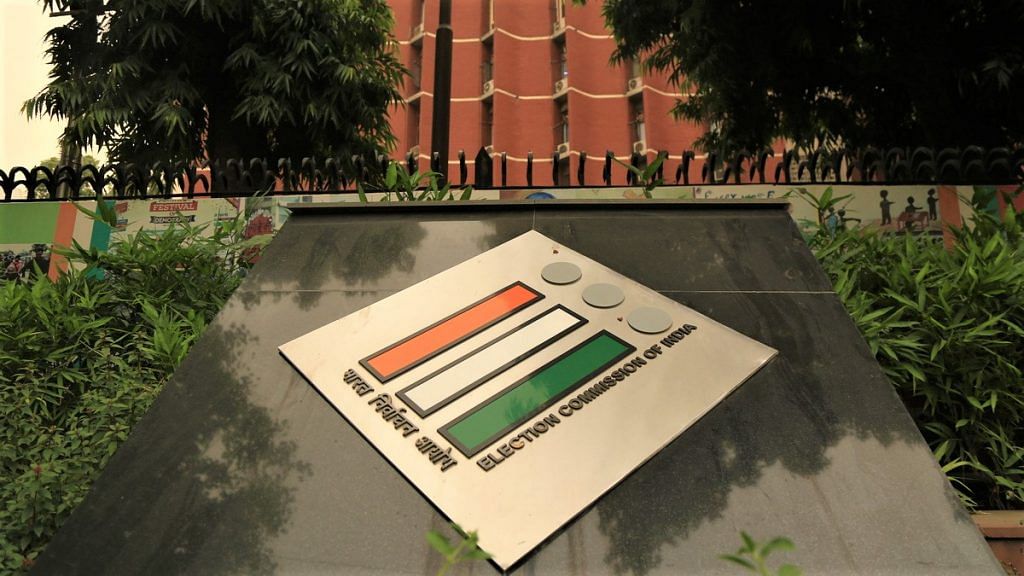New Delhi: The Supreme Court is all set to deliver an important judgment on the validity of the Modi government’s controversial electoral bond scheme Friday. If the comments and statements made Thursday, by the bench headed by Chief Justice Ranjan Gogoi, are anything to go by, the judgment may not be good news for the Modi government.
In an exchange with Attorney General K.K. Venugopal, Justice Deepak Gupta Thursday said, “It is a very important aspect of democracy for the voter to know as to who funds their party.”
While the SC decision in the matter is still awaited, the statement comes as a vindication for the petitioner in the case, the NGO Association for Democratic Reforms (ADR). In its plea, ADR has sought either a stay on the issuance of electoral bonds or that the identities of the donors be made public.
The statement also comes as a vindication for the Election Commission (EC). Under fire from several quarters for buckling under the pressure of the government and the ruling BJP, the EC has fought a quiet but consistent battle over the scheme ever since its inception in 2017.
Also read: 66 ex-civil servants allege 9 model code violations, call Election Commission ‘weak-kneed
EC had batted for transparency
The EC has even opposed the government’s stand in the Supreme Court on the issue. On Wednesday it told the court, “We are not opposed to the electoral bonds but we are opposed to anonymity. We want full disclosure and transparency.”
This was days after the finance ministry filed a strong counter-affidavit in the court repudiating the EC’s arguments made earlier in the court and calling the scheme “a “pioneer step in bringing electoral reforms to ensure that the spirit of transparency and accountability in political finding is maintained”.
Electoral bonds are like promissory notes that are available, during a designated window in every quarter of the financial year, at the State Bank of India (SBI). The SBI is the only authorised bank to issue such bonds.
The bonds, however, have been under the EC scanner for giving complete anonymity to donors. Moreover, according to the BJP’s audit and income tax reports submitted to the EC last year, the party was the biggest beneficiary of the scheme — bagging 95 per cent of the bonds released till 31 March 2018. The subsequent income tax reports are yet to be received.
A strong affidavit against the government
Last month, in an unequivocally strong affidavit, the EC told the court that the scheme would have “serious repercussions/impact on the transparency aspect of political finance/funding of political parties”.
To be sure, the EC was cautious enough to state in its affidavit that being a constitutional authority, it “does not propose to take any contentious issues or to join any submission on merits etc, as these are matters between contending parties”.
However, through its bid to simply “explain broadly the position of law on the subject” and place “its own position own record,” the EC left nothing to the imagination.
“Any donation received by a political party through an electoral bond has been taken out of the ambit of reporting under the Contribution Report as prescribed under Section 29C of the Representation of the People Act, 1951,” the Commission said in the affidavit.
“In a situation where contributions received through electoral bonds are not reported, on perusal of the contribution reports of the political parties, it cannot be ascertained whether the political party has taken any donation in violation of provisions under Section 29-B of the Representation of the People Act, 1951, which prohibits the political parties from taking donations from government companies and foreign sources,” it added.
Further, the scheme “opens up the possibility of shell companies being set up for the sole purpose of making donations to political parties,” it informed the court.
Also read: Why Election Commission changed its mind on Modi biopic and stopped its release
Sustained opposition to the scheme
The EC’s opposition to the scheme is not new. Back in 2017, before the scheme was notified, the EC, under then chief election commissioner (CEC) Nasim Zaidi had told the law ministry in an affidavit that the scheme was “a retrograde step”.
So in that sense, the EC was only reiterating an older stand.
However, it is noteworthy that months after calling the scheme “retrograde,” the EC had shown signs of changing its position on the matter.
Marking a shift in the poll watchdog’s position, Zaidi’s successor, A.K. Joti said, “There will be a banking trail of the donations that will be made. That is one step in the right direction. I have not said it will solve all the problems… Let it (bonds) be rolled out.”
But asked for its view on the matter, the EC, under current CEC Sunil Arora, reiterated the Commission’s original stance on the issue — thereby opposing the Modi government in the Supreme Court.
Led by Finance Minister Arun Jaitley, the government has consistently defended the scheme in the face of opposition from the EC, other political parties and even its own ministries.
Last week, in a Facebook post, Jaitley called the scheme a legitimate and transparent mode of political funding. He dismissed the criticism against the bonds as a result of the tendency among NGOs to exaggerate and misrepresent, and spread misinformation about electoral bonds.
